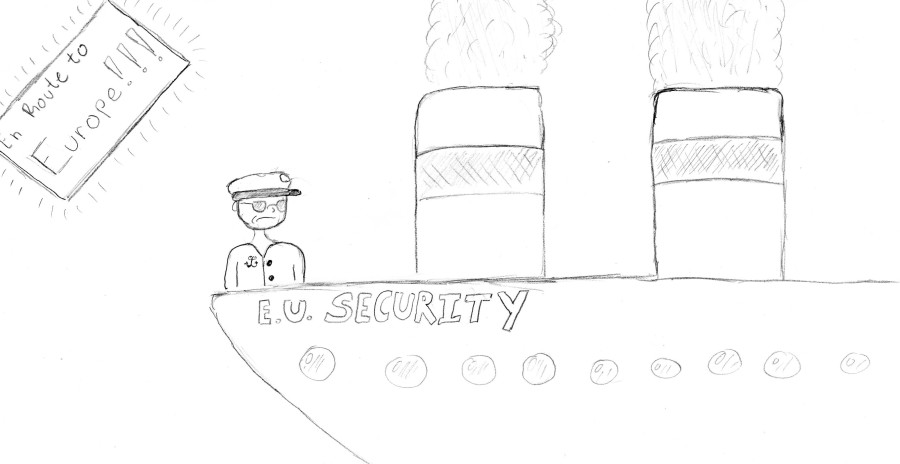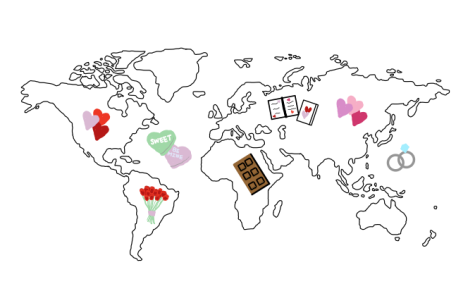United Nations’ inattentiveness leaves refugees in jeopardy
In what is deemed the Syrian refugee crisis, about 12 million people have been displaced from their homes in Syria and 4.1 million have fled the country. Now refugees, millions of Syrians are seeking asylum in neighboring countries and countries around the world. The massive influx of refugees took the world by surprise, and the unprepared nations have yet to find a sound solution to the economic and social conflicts that this issue entails.
The Syrian refugee crisis began in March 2011. During this time period, throughout North Africa and the Middle East pro-democracy sentiment erupted in protest against totalitarian rulers and dictators, in what is coined the Arab Spring. In Syria, the Assad family has remained in political control since a coup in the 1960s, with the most recent authoritarian dictator, Bashar Al-Assad, taking power in 2000. According to the BBC, in 2011 students who vandalized a building with revolutionary phrases were arrested and tortured in the city of Deraa. This increased the already existent revolutionary sentiments throughout Syria, and many began protesting on the streets. The government responded violently to these protests, in some cases openly firing on protesters. The protests eventually formed into a militaristic opposition which led to the founding of the Free Syrian Army to combat government forces. These opposing forces created a devastating civil war and according to Mercy Corps, more than 220,000 people have died. Evidence of war crimes such as rape, torture and the use of chemical weapons exist. Along with the government conflict, jihadist groups have added to the violence with terrorist attacks. This conflict has forced millions out of their homes due to life-threatening conditions.
So, now millions of Syrian refugees are seeking refuge from terrible and life threatening conditions. According to World Vision, nearly half of these refugees are children. The largest problem is where all the refugees will go. Not only do the Syrian refugees deserve asylum, but it is also international law that they must be given asylum. Most refugees have fled to neighboring countries such as Lebanon, Turkey and Jordan because of their accessibility. The rest have fled to countries in the European Union and throughout world who have agreed to accept a certain quota of refugees. For example, according to CNN, Germany has agreed to take 500,000 refugees over the next few years, the United Kingdom 20,000 over the next five years, and the United States 75,000 over the next few years. Some countries have not accepted any at all. In order to reach the farther destinations that accept refugees, many Syrians risk their lives and some die. Many take overcrowded and dangerous boats in hopes of reaching the countries to be granted asylum. According to HONY, one Syrian refugee on her boat said, “Both the lower compartment and the deck were filled with people,” and after the boat sank, “we swam for as long as possible.
The United Nations was largely unprepared for such a large amount of refugees at once economically and most of the individual countries were unprepared socially. According to Marcy Corps, in 2014, $6.5 billion were required to meet the needs of all of the refugees and only half of that was funded. Now, nearly $8.4 billion is necessary to aid the refugees. Countries that already struggle with their economy will have trouble with the added financial aspects of this immigration. So far the U.N. has attempted to advocate for international support and has released the 3RP Regional Guidance Kit for 2016 to help with further aid.
Giving aid to refugees is more difficult than it may seem as many of the natives of these countries have negative views of the immigrants based on facts that are often untrue. According to U.S. News survey, 48 percent of Germans and 51 percent of Greeks believe immigrants in their countries are more to blame for crimes than other groups. The same survey shows that 69 percent in Italy and 52 percent in France believe immigrants are a burden because they take jobs. There is little evidence to support these views and but this still adds to the difficulty for refugees trying to find asylum.
Despite all of the factors surrounding the Syrian refugee crisis, a solution must be reached. The refugees face a grave and deadly threat in their homeland and that can not be ignored. Such a large-scale problem must be seriously addressed and the immediate care of the refugees must be a priority.
Your donation will support the student journalists of Saint Viator High School. Your contribution will allow us to purchase equipment and cover our annual website hosting costs.








